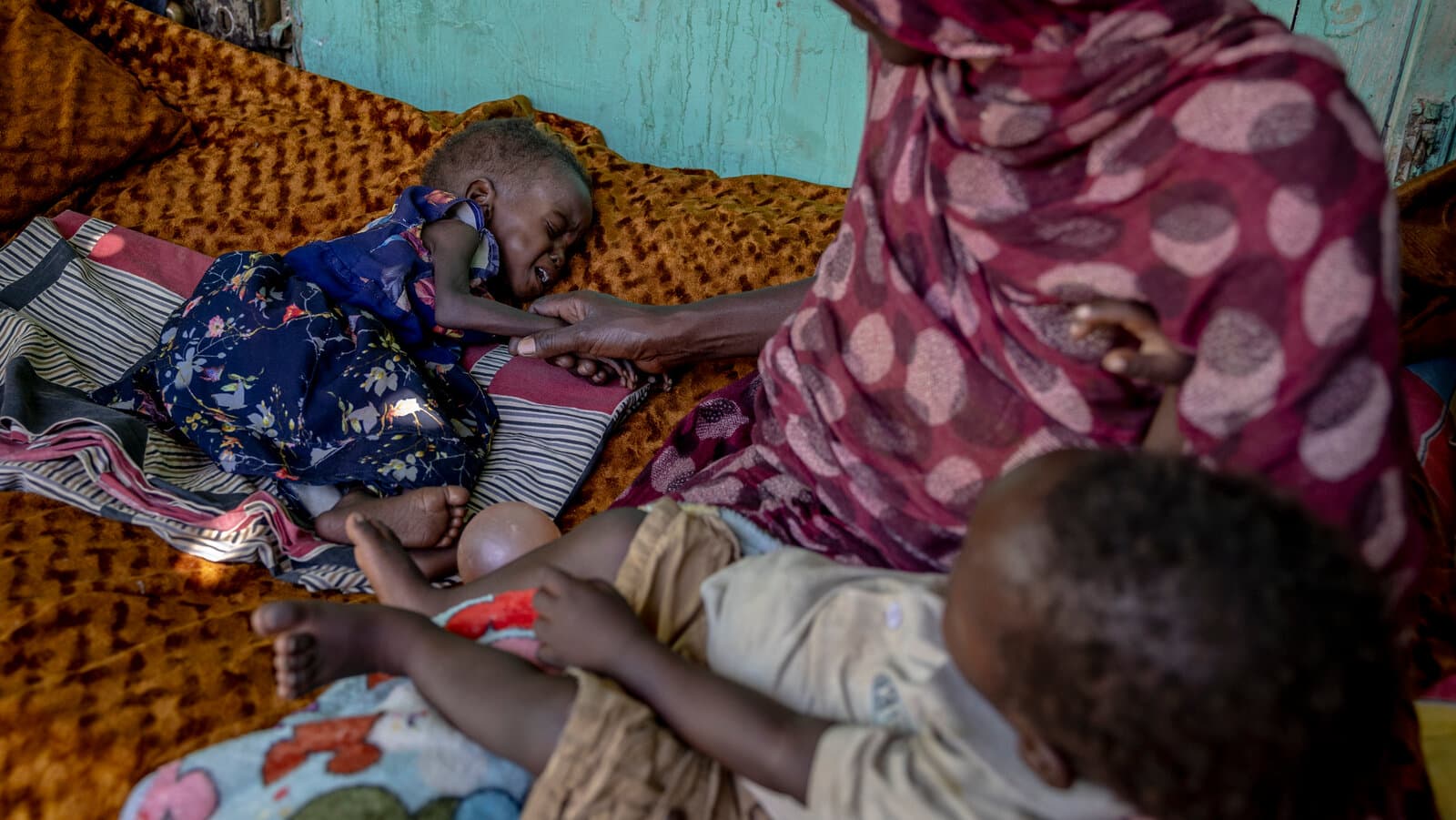We're loading the full news article for you. This includes the article content, images, author information, and related articles.
The ongoing civil war in Sudan, which began in April 2023, has plunged the nation into a catastrophic humanitarian crisis, forcing families to make unimaginable decisions and leaving millions, especially children, on the brink of starvation.

In the heart of Sudan's capital, Khartoum, a harrowing scene unfolds daily at Bashaer Hospital, one of the few remaining functional medical facilities. Touma, a 25-year-old mother, sits in a malnutrition ward, her eyes vacant, clutching her severely malnourished three-year-old daughter, Masajed. "I wish she would cry," Touma whispers, her voice devoid of emotion. "She hasn't cried in days." This poignant image encapsulates the devastating human cost of the conflict that has ravaged Sudan since April 2023, pitting the Sudanese Armed Forces (SAF) against the paramilitary Rapid Support Forces (RSF). Touma's family, like millions of others, was forced to flee their home approximately 200km south-west of Khartoum as fighting intensified.
Sudan has a long history of internal conflict, with civil wars dating back to 1955, even before its independence in 1956. The current conflict, which erupted on April 15, 2023, stems from a power struggle between General Abdel Fattah al-Burhan, leader of the SAF, and Mohamed Hamdan Dagalo (Hemedti), who commands the RSF. This latest chapter of violence follows a failed transition to democracy after the ousting of President Omar al-Bashir in 2019 and a subsequent military coup in October 2021.
The ongoing conflict has led to a near-total collapse of state institutions and basic services across Sudan. Humanitarian aid delivery is severely hampered by widespread insecurity and access constraints, making it nearly impossible to reach many affected regions, particularly Darfur. The World Food Programme (WFP) has, however, managed to deliver life-saving food and nutrition assistance in all 18 states since the conflict began.
The human toll of the conflict is immense. As of December 2024, 14.3 million people have been displaced, making it the largest displacement crisis globally. Nearly 4 million people, predominantly women and children, have sought refuge in neighbouring countries. The International Committee of the Red Cross (ICRC) and the Sudanese Red Crescent Society (SRCS) are on the ground, providing essential services like medical supplies, clean water, and family reunification. The Kenya Red Cross has also offered mental health support to evacuees arriving in Nairobi, many of whom have experienced traumatic situations, including sexual violence.
The humanitarian crisis in Sudan is one of the worst globally.
The Sudanese civil war poses significant risks to regional stability, particularly for East African nations. The influx of nearly 2 million refugees into neighbouring countries like Egypt, Chad, and South Sudan is straining already limited resources and leading to increased tensions. Kenya, a key player in regional peace efforts, has faced diplomatic challenges, including accusations from Khartoum of supporting the RSF after hosting their representatives in Nairobi in February 2025. This has led to economic friction, with Sudan imposing a ban on Kenyan imports in February 2024, impacting Kenya's tea exports.
Despite the overwhelming evidence of a dire humanitarian situation, the international response has been criticised as insufficient. UNICEF reported in September 2025 that 62% of its $1 billion (approximately KES 130 billion) response plan remains unfunded. There are also ongoing concerns about the impartiality of regional mediation efforts, with some analysts suggesting that Kenya's actions have been perceived as taking sides in the conflict.
The conflict, which began on Thursday, April 15, 2023, continues to escalate with no clear resolution in sight. Humanitarian organisations are urgently appealing for increased funding to prevent further loss of life. The WFP requires an additional $600 million (approximately KES 78 billion) over the next six months to scale up support to 8 million people per month and avert widespread famine.
The international community will be closely watching for any diplomatic breakthroughs that could lead to a ceasefire and a lasting peace agreement. The effectiveness of humanitarian aid delivery, particularly in hard-to-reach areas, remains a critical concern. Kenya's ongoing role in regional peace initiatives and its diplomatic relations with Sudan will also be under scrutiny.
Keep the conversation in one place—threads here stay linked to the story and in the forums.
Sign in to start a discussion
Start a conversation about this story and keep it linked here.
Other hot threads
E-sports and Gaming Community in Kenya
Active 9 months ago
The Role of Technology in Modern Agriculture (AgriTech)
Active 9 months ago
Popular Recreational Activities Across Counties
Active 9 months ago
Investing in Youth Sports Development Programs
Active 9 months ago
Key figures and persons of interest featured in this article